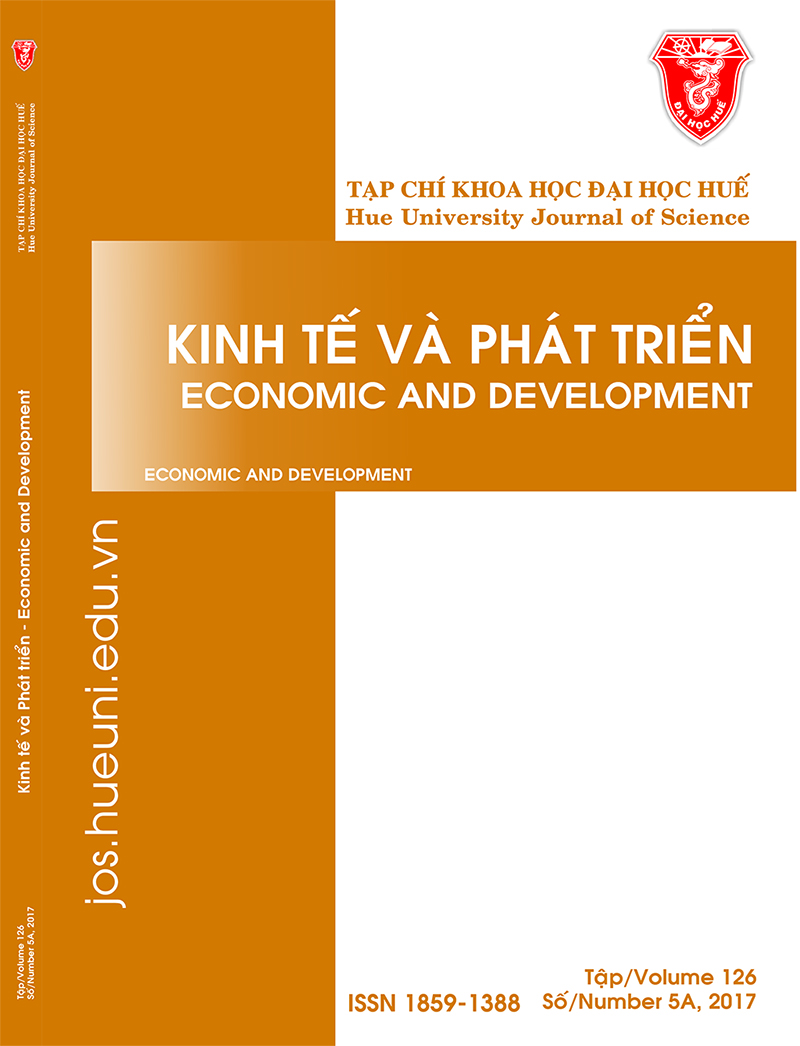Abstract
Năng lực cạnh tranh của một điểm đến du lịch là khả năng của điểm đến tạo ra và tích hợp các sản phẩm có giá trị gia tăng, bảo tồn được tài nguyên đồng thời duy trì được vị thế cạnh tranh của mình so với các đối thủ khác”. Trong khi khái niệm về năng lực cạnh tranh điểm đến được đề cập khá thống nhất trong hầu hết các nghiên cứu liên quan thì vấn đề xác định khung nghiên cứu và hệ thống các biến số đánh giá năng lực cạnh tranh điểm đến lại vẫn còn khá nhiều khác biệt.
Dựa trên tính ưu việt của phương pháp Delphi trong việc tìm kiếm ý kiến đồng thuận về một vấn đề hoặc xây dựng mô
References
- Adler, M. & Ziglio, E. (1996).Gazing into the oracle: The Delphi method and its application to social policy and public health.London: Jessica Kingsley Publishers.
- Cracolici, M.F., & Nijkamp, P. (2009). The attractiveness and competitiveness of tourist destinations: a study of Southern Italian regions.Tourism Management, 30(3), 336-344.
- Crouch, G.I, (2011). Destination Competitiveness: An Analysis of Determinant Attributes. Journal of Travel Research, 50(1), 27–45
- Crouch, G.I & Ritchie, B.J.R. (1999). Tourism Competitiveness, and Societal Prosperity. Journal of Business Research, 44, 137-52.
- Dalkey, N. and Helmer, O. (1963). An experimental application of the Delphi method to the use of Experts. Management Science, Vol. 9(3), 458-467.
- Dwyer, Larry, & Kim, C.W. (2003).Destination Competitiveness: determinants and indicators.Current Issues in Tourism, 6 (5), 369-414.
- Enright, M., & Newton, E. (2005).Determinants of Tourism Destination Competitiveness in Asia Pacific: Comprehensiveness and Universality.Journal of Travel Research, 43, 339-350.
- Eysteinsson, F. (2012) Destination competitveness in the eyes of tourists: the case of Iceland. The 2nd Advances in hospitality and tourism marketing & management Conference. 31 May – 3 June, 2012, Greece.
- Gooroochurn, N., & Sugiyarto, G. (2005). Competitiveness indicators in the travel and tourism industry.Tourism Economics, 11(1), 25-43
- Gomezelj, O.D & Mihalič, T. (2008).Destination competitiveness-Applying different models, the case of Slovenia.Tourism Management, 29, 294-307.
- Hassan, S.S. (2000). Determinants of Market competitiveness in an environmentally sustainable tourism Industry.Journal of Travel Research, 38, 239-245.
- Hartman, F. & Baldwin, A. (1995).Using technology to improve the Delphi method.Journal of Computing in Civil Engineering.9, 244-249.
- Hsu, C. C. and B. A. Sandford (2007) The Delphi Technique: Making sense of concensus. Practical Assessment, Research & Evaluation, Vol 12 (10), 1-8.
- Kozak, M. & Rimmington, M. (1999).Measuring tourist destination competitiveness: conceptual considerations and empirical findings.Hospitality Management, 18, 273-283.
- Kuo, N. W. & Yu, Y. H. (1999).An evaluation system for national park selection in Taiwan.Journal of Environmental Planning and Management, 42 (5), 735-743.
- Lam, S. S., Petri, K. L. & Smith, A. E. (2000). Predition and optimization of a ceramic casting process using a hierarchical hybrid system of neutral networks and fuzzy logic. IIE Transactions, 32 (1), 83-92.
- Lipschitz, L. & McDonald, D. (1991).Real Exchange Rates and Competitiveness: A Clarification of Concepts, and Some Measurements for Europe.IMF Working Paper, 1-48.
- Linstone, H. and Turloff, M. (1975).The Delphi method: Techniques and applications. London, UK: Addison-Wesley.
- Ludwig,B. (1997). Predicting the future: Have you considered using Delphi methodology? Journal of Extension 35(5), 1-4.
- Miller, L. E. (2006) Determining what could/should be: The Delphi technique and its application. Paper presented at Annual meeting of the Mid-Western Educational Research Association, Ohio, Otc. 2006.
- Nguyễn Thị Lệ Hương. (2014).Phân tích khả năng cạnh tranh của điểm đến du lịch thành phố Huế, 10/2014, Trường Đại học Kinh tế Huế.
- Pill, J. (1971).The Delphi method: Substance, context, a critique and an annotated bibliography.Socio-Economic Planning Science, 5.
- Pearce, D.G. (1997). Competitive Destination Analysis in Southeast Asia. Journal of Travel Research, 35(4), 16-25.
